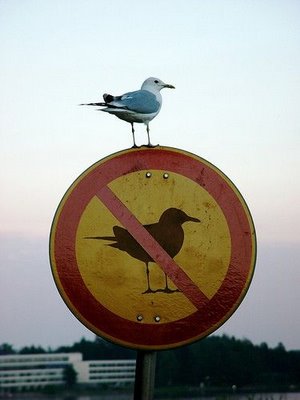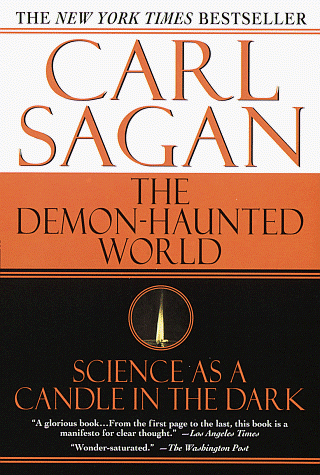Some passages are pure gold. When he speaks about the endeavours of certain scientists and activists struggling against the prejudices of their respective ages he was absolutely at his best. In this book he does this many times but most memorably with some of the people objecting to witchcraft trials in Europe and Frederick Douglass.
Also, when Sagan tried to disprove and demystify things he did it wonderfully smoothly and in a way that didn't seem to rub so many people up the wrong way as someone like Richard Dawkins regularly does. He could actually do it in such a beautiful way that I am sure many people didn't realise that were being mocked, albeit gently. When he was at his best it was really poetry.
Furthermore, his pleas for improving the standard of education in general and scientific education in particular are logical, well-evidenced and to the point. The same can be said of the reasons he thinks governments do not particularly want an educated public (if they know what you are doing then they know what you are doing wrong).
However, it was when he started to talk about US government past and present that he seemed to not be taking his own advice about looking at all the evidence. Carl Sagan was involved with the US government in some of their better projects such as SETI and had a vested interest. Nonetheless, he did speak out against many projects such as the Star Wars Defence Initiative and others and in this book launches a brilliant sustained attack against Edward Teller who was undoubtedly one of the most bellicose scientists involved with the US.
Maybe it is only me but I just didn't like that although he appealed for more sensible behaviour by the US government it was always in terms of "please stop spending so much on the military" instead of "stop bombing people". Surely the evidence would suggest that governments don't change just because you ask them nicely. And when he used examples about aggression or tyranny they were nearly always about other countries.
Maybe he didn't have the information at hand but I doubt that. Maybe even he wasn't completely immune to the propaganda of the time of Cold War he grew up in. Maybe he just didn't want to rub people the wrong way.
Finally, in one of the chapters toward the end he speaks at length about Thomas Jefferson and the founding fathers and points out problems in the USA today in a "what would the founding fathers make of it?" way and it all seemed a bit like a schoolboy tract. I wondered if he had ever read what Howard Zinn had had to say about the founding fathers.
There was also a small point he made about 1984 which wasn't exactly correct. He said The Ministry of Truth in 1984 was based on the rewriting of history in Stalin's Russia but that wasn't really it. The Ministry of Truth was based on a number of things including the rewriting of history Orwell had seen in relation to the Spanish Civil War in which he fought, the BBC when Orwell worked there during World War II and also the propaganda in both the fascist and communist countries of Europe.
He does put forth some very radical arguments in the book, which make a lot of sense but that radicalism tends to desert him at a couple of points.
I really don't want to disparage Carl Sagan and I hope I haven't. He is a hero of mine and you really should read this--the majority of it is wonderful. It is only because he set such high standards in other things (and in this) that I was a little bit disappointed with 2 small parts of a longish book.






